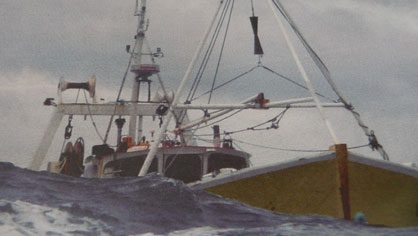16 March 2009
The NFFO is working intensively with the North Sea and North West Waters regional advisory councils to secure changes to a Commission proposal for a new EU fisheries control regulation
The proposal is one of the most poorly thought through documents ever to emerge from Brussels and appears to have all the hallmarks of a proposal produced in panic after the CFP was the subject of “the most critical report by the European Court of Auditors since the start of the European Union”
The proposal ties modern technology to some of the most backward thinking to emerge on fisheries management for some time. A requirement for satellite monitoring and electronic logbooks, for all vessels down to 10 metres, is tied to a series of measures that often treat fishermen like convicted criminals. The whole proposal appears to have been written as a policeman’s wish list. We understand that there is considerable unease about the proposal even from within parts of the Commission itself.
The Federation has been working with the RACS to highlight the parts of the proposal that must change before the proposal is put before the Council of Ministers. These include:
- A margin of tolerance between logbook and landing declaration reduced to 5% when it has been repeatedly pointed out that this level of accuracy is simply not achievable on a consistent basis. (For example, to take only one factor, research has demonstrated that monkfish can lose up to 15% of its weight during the course of a trip after capture)
- A requirement that fishing vessels must maintain a speed above 6 knots at all times when in a marine protected zone. Apart from whether this is practically realizable for all fishing vessels in all conditions without jeopardising the vessel and crew, it reveals a dismal lack of knowledge about the legislation on MPAs. Some MPAs may become closed areas for fishing but this will be decided as part of a tailored management regime. Many parts of designated MPAs will remain open for some kinds of fishing.
- Requirements that cut across and undermine perfectly valid commercial practises in the industry, for no obvious benefit other than a spurious and sometimes dangerous rigidity in areas such as advance notification of landing
- A facility to take quota from fishermen who have already been prosecuted for an infringement. This contrives the double jeopardy rules that apply in other areas of criminal justice system
- 108 other clauses that require scrutiny, comment and where necessary criticism
We fully accept that a high degree of compliance is a precondition for an effective fisheries policy and if we have rules, they must be enforced to ensure that everyone is operating on an even playing field. But the current Commission proposal is a travesty. It is a backward and poorly thought through document which would benefit from being shelved until the CFP reform in 2012 provides the legal basis for a much higher degree of industry involvement for management and control within a framework of audited monitoring. This is not likely to happen as the Commission is desperate to demonstrate that it is reaction to the Court of Auditors report. Unless we can secure radical changes to the proposal we will have to live with the consequences.

